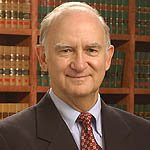DARKEST HOUR 4.0***
Gary
Oldman lives and breathes Winston Churchill and his charisma carries the entire
movie. This was such a monumental time in Churchill's life, yet it took place
over less than two weeks. At first glance, one might think that the title was referring
to England's darkest hour, but the film reveals that it is actually
showing Churchill's darkest hour, where he was riddled with self-doubt as well
as opposition from people who should have been his allies. Despite his belief
that surrendering to Hitler would only make things worse, people were dying day
after day and almost the entire British Army was surrounded by the Germans at
Dunkirk. It seemed that the only option that wouldn't result in annihilation
was to negotiate with the tyrant. In the end though, it wasn't the pressure of
politicians or concern over his reputation that caused Churchill to choose to
keep fighting against overwhelming odds. It was the opinions of ordinary
people. Which brings me to my favorite scene in the movie. I don't know if it's
historically accurate or not, but the scene on the subway train shows us what a
kind-hearted, funny, likeable and humble guy Churchill was. He joked around
with normal people while also asking for their advice.
It's
almost incomprehensible to consider that one man could have such a singular
impact, not only on the direction of his country but on that of the entire
world. Just consider, had Churchill not stood fast (and he did have his moments
of doubt), England would eventually have succumbed to Hitler's tyranny, and
virtually the whole of Europe might be speaking German today
Gary
Oldman's portrayal is one for the ages; if you compare his regular features to
those of the man he represents here, it's virtually impossible to tell it's the
same actor. His transformation into the British wartime Prime Minister is
simply remarkable and, in my opinion, will earn him Best Actor honors at the
Oscars (can be compared to Danie day Lewis’ astounding portrayal of Lincoln)
Overall,
this is a well-constructed, finely focused narrative that gives the audience a
sweeping glimpse of the man himself, both guarded before the sting of his
political enemies and vulnerable in the friendlier confines of his home or
office. Interesting to pair this with another Best Picture nominee: “Dunkirk”
as the two explore the same military event from two different perspectives.

No comments:
Post a Comment